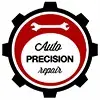Behind every skilled car mechanic is a toolbox filled with reliable equipment that gets the job done right. Whether working in a professional shop or handling DIY projects at home, having the proper tools is critical for safe, efficient, and accurate repairs. But tools alone aren’t enough — knowing how to use them effectively is what separates amateurs from true experts.
Core Tools for Every Car Mechanic
A car mechanic’s toolkit should start with high-quality hand tools. Socket sets, ratchets, and combination wrenches are must-haves for loosening and tightening bolts on everything from engines to brake systems. For example, a premium socket set from a brand like Snap-on or Craftsman ensures durability and precise fit, preventing damage to fasteners.
Torque wrenches are essential for ensuring that critical components like cylinder heads or wheels are tightened to exact specifications, reducing the risk of failure. Screwdrivers, pliers, and wire cutters help with electrical work and smaller adjustments. Power tools — such as an impact wrench or cordless drill — speed up repetitive tasks and make tough jobs easier.
Don’t forget safety gear. Quality gloves, eye protection, and sturdy jacks with jack stands are just as important as the tools themselves. Working safely protects both the mechanic and the vehicle.
The Role of Education in Using Car Mechanic Tools
Even the best tools are ineffective without the proper knowledge. A car mechanic needs training to read technical manuals, understand torque specs, and use diagnostic equipment like OBD-II scanners. Many professionals attend technical schools or certification programs to gain this expertise. Regularly updating skills through workshops or online courses ensures mechanics stay current with modern vehicle technology, such as hybrid and electric systems.
Tools and Knowledge Go Hand in Hand
A car mechanic’s success depends on having the right tools and knowing how to use them. Investing in quality equipment and continuing education ensures safer, faster, and more accurate repairs. Whether you’re starting out or refining your skills, take the time to build a complete toolkit and stay informed — your career and customers will benefit!
READ MORE:
How a Car Mechanic Stays Up-to-Date with the Latest Automotive Technology

